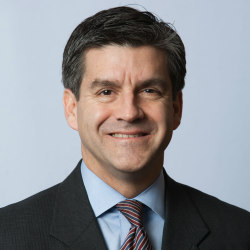Illinois Policy Institute Vice President of Policy Ted Dabrowski joined Mike Flannery on Fox Chicago to discuss Illinois’ Medicaid expansion.
Beginning New Year’s Day, up to 1 million more low-income adult Illinoisans will be eligible for free health care coverage. Governor Quinn signed it into law on Monday.
He noted that the President’s Affordable Care Act promises to cover the state’s new costs for three years by providing billions of extra federal dollars.
Supporters of extending Medicaid to this new group — childless adults — argue it will save money in the long run by improving their health, reducing their reliance on expensive emergency room care. Critics fear that, before the long run ever arrives, Illinois could be flat-broke busted. The state government is already unable to pay its Medicaid bills on time.
“We’re afraid that we won’t have enough money to pay for the program,” State Rep. Patricia Bellock says.
Hinsdale’s Rep. Patti Bellock is skeptical, but Governor Quinn believes Illinois can afford to expand Medicaid to as many as one million more adults, because billions of new federal dollars have been promised by the President’s Affordable Care Act. But the President delayed one big part of Obamacare last month, and now, in exchange for raising the national debt limit this fall, some in Washington want to cut the very federal dollars Illinois is already counting.
There are also questions about who exactly will treat hundreds of thousands of new Medicaid patients. Because of Illinois’s desperate financial shape, the state has repeatedly slashed what it pays doctors. Rather than lose money, perhaps one-third of local physicians will not accept new Medicaid patients.
“Illinois has the lowest reimbursement rate in the region and one of the lowest in the nation,” says Ted Dabrowski of the Illinois Policy Institute. “And so it can’t afford to pay doctors and hospitals what it should pay. And that’s why doctors and hospitals are cutting back on Medicaid patients.”
Democrats and Republicans agree there is a lot of fraud and waste in Medicaid. An evaluation by the US Department of Health and Human Services, though, found that until recently state effort to root it out was disorganized and ineffective. Then, when it turned the job over to a private contractor, the AFSCME union went to arbitration. The union a ruling that the contractor should be fired and that more state employees should be hired to do the anti-fraud work.
“We contended before the arbitrator, and the state couldn’t refute it, that, if they hired a hundred more people, we could get the job done,” explains Henry Bayer of the AFSCME union.
The law the governor signed does say that, if the Feds do cut their promised 100% reimbursement to a level below 90%, then the Medicaid expansion will be cancelled. There is some fear that the state may not have the legal power to do that.
